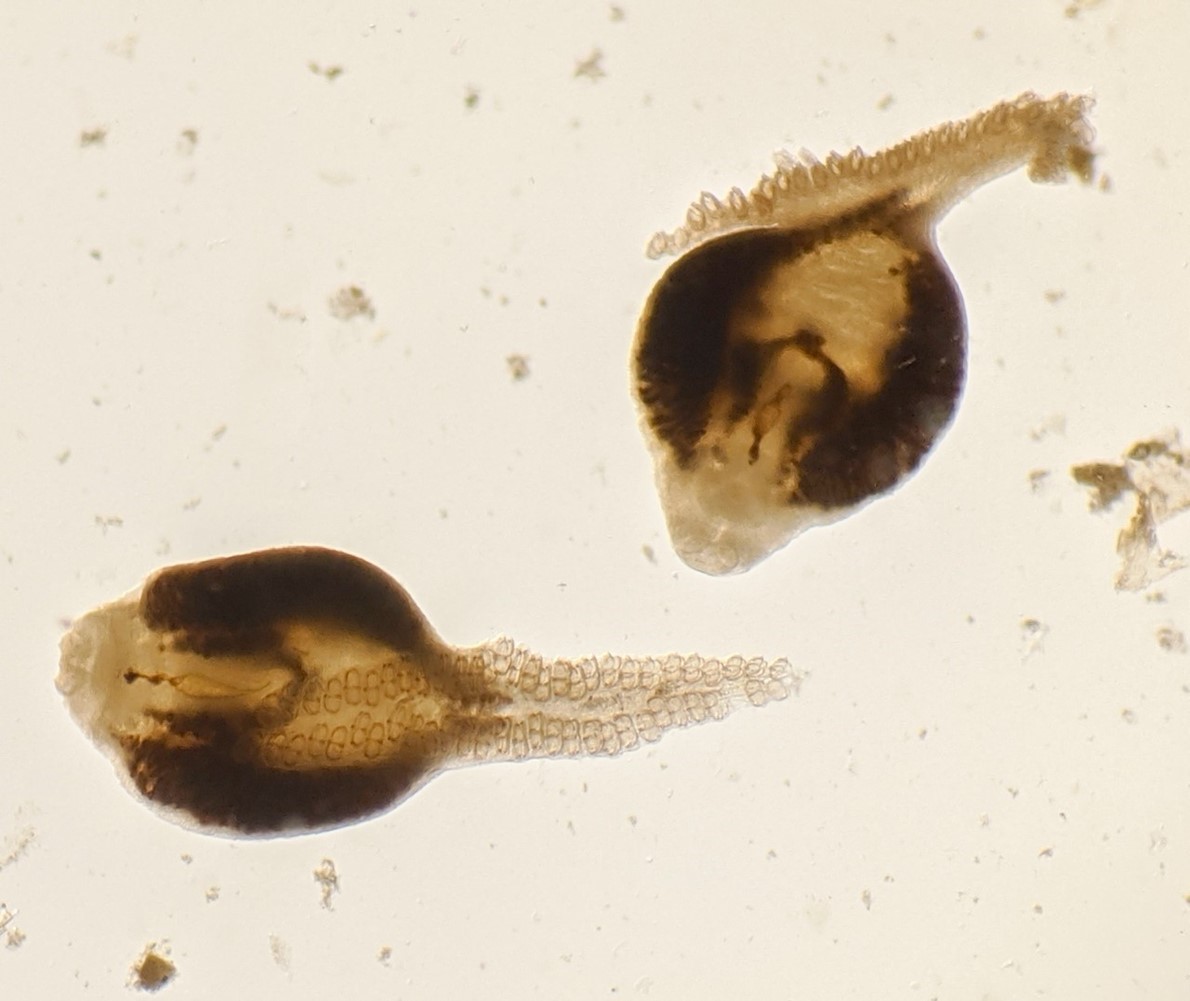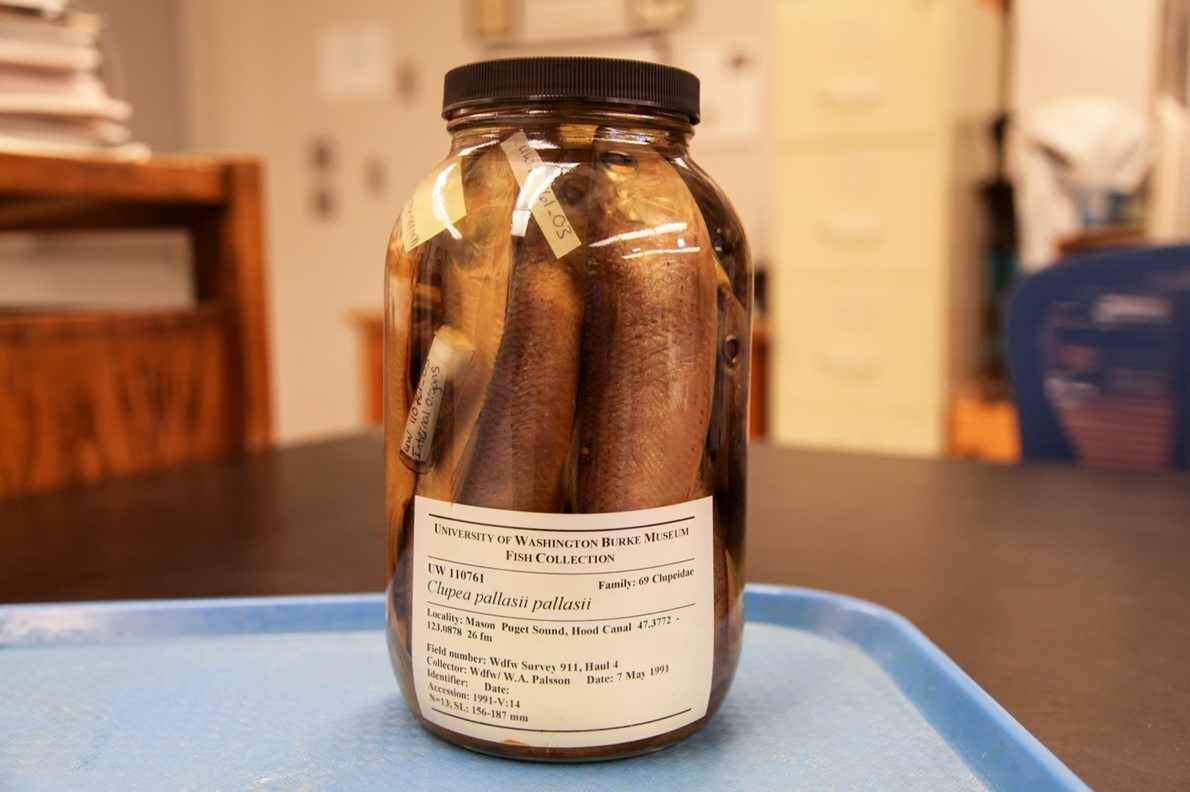Most people assume that a warmer planet will be a buggier, more
parasite- and disease-ridden place. There are plenty of examples to justify
this fear. Climate change is already expanding the range of ticks that spread
Lyme disease; mosquitoes that transmit malaria and Zika; and nocturnal, biting
kissing bugs that drive Chagas’ disease infections.
اضافة اعلان
But while some parasitic species are getting a boost from
climate change, they may be the exception rather than the rule. According to a
groundbreaking study published this month in the Proceedings of the National
Academy of Sciences that analyzed 85 parasitic species, the majority suffered
population declines over 140 years, on par with some of the most threatened
wildlife species — or worse.
 An undated photo of Monogenean worms
(Microcotyle sebastis) that were dissected from the gills of a preserved copper
rockfish from the Burke Museum specimen collection.
An undated photo of Monogenean worms
(Microcotyle sebastis) that were dissected from the gills of a preserved copper
rockfish from the Burke Museum specimen collection.
“It’s the kind of decline that triggers conservation action for
mammals and birds, and that gets people riled,” said Chelsea Wood, a parasite
ecologist at the University of Washington and an author of the study.
‘Not good news’It might sound counterintuitive, but this is not good news.
Forty percent to 50 percent of all animal species on Earth are parasites, or
organisms that live in or on a host and depend on it for survival, at that
host’s expense. That figure does not even count certain bacteria, viruses,
fungi, and protozoans that are also considered to be parasitic. Yet very little
is known about these wildly abundant, diverse life-forms. Most discussion of
parasites involves species that negatively affect us, our pets, our livestock or
our children. But these malignant species are in the extreme minority.
As scientists learn more about the hundreds of thousands of
other parasitic species that do not harm humans, a picture of animal groups
that play key roles in maintaining healthy ecosystems is emerging. For
instance, parasites keep species populations in check just like predators do.
Parasites also help to push energy up the food web, by making
prey species behave more recklessly and become easier for predators to catch.
California killifish infected with a trematode flatworm, for example, are 10 to
30 times more likely to become meals for birds than uninfected fish. In Japan,
nematomorph worms goad their cricket hosts into jumping into streams, providing
up to 60% of total calories for endangered Japanese char. “Predators are
getting an assist from parasites,” Wood said.
As scientists learn more about the hundreds of thousands of other parasitic species that do not harm humans, a picture of animal groups that play key roles in maintaining healthy ecosystems is emerging. For instance, parasites keep species populations in check just like predators do.
Until now, scientists were mostly left to guess how climate
change and other anthropogenic pressures were affecting parasites. To answer
this question, Wood and her colleagues turned to 699 fish specimens, most of
which were kept in the basement of the Burke Museum of Natural History and
Culture in Seattle. The fish, which were collected between 1880 and 2019 in the
Puget Sound of Washington state, were “parasite time capsules,” Wood said. The
formalin and ethanol that suspended the fish in time at the moments of their
death also preserved the worms and other organisms attached to their gills and
skin or burrowed into their muscles and innards.
Meticulous dissection of these specimens revealed 17,702
parasites that were members of 85 species, allowing Wood and her colleagues to
infer how population abundance has changed over time.
‘No data like this’“There is no data set like this in the world,” said Skylar Hopkins,
a parasite ecologist at North Carolina State University, who was not involved
in the research. “Just imagine how long it took them to dissect all those
stinky, ancient fish.”
Controlling for other factors like pollution and fluctuating
fish populations, the team found that across all species, parasites declined by
38% for every degree Celsius of temperature increase. Some species were harmed
more than others. Parasites with complex life cycles — the 52 percent of
species in the study that require three, four or even five hosts to make it
from egg to adult — declined by almost 11 percent every decade, a finding that
was significantly associated with sea surface temperature. “The hotter it got,
the fewer of those parasites we found,” Wood said.
 An undated photo of a jar of fluid-preserved
fish specimens collected in Hood Canal in 1991, from the University of
Washington fish collection at the Burke Museum.
An undated photo of a jar of fluid-preserved
fish specimens collected in Hood Canal in 1991, from the University of
Washington fish collection at the Burke Museum.
The “remarkable” data set gathered by Wood and colleagues showed
“that losses in parasite diversity can be measured and are substantial,” said
Armand Kuris, a parasite ecologist at the University of California, Santa
Barbara, who was not involved in the research. “This is disturbing news.”
Kevin Lafferty, a disease ecologist at the U.S. Geological
Survey, who also was not involved in the research, said it makes sense that
parasites with complex life cycles are “the first to go,” because they have
evolved to exploit complex ecosystems. Around the world, climate change,
pollution, overfishing and other human-caused stressors are steadily chipping
away at nature’s complexity, leading to simpler systems that no longer seem to
be able to support the careful choreography of a multihost lifestyle. As
Lafferty said, such parasites are, “to use a tired phrase, canaries in the coal
mine.”
Scientists cannot say yet if the findings from the Puget Sound
generalize to other ecosystems. Wood and her colleagues have already started
analyzing fish specimens from the Gulf of Alaska as well as the Rio Grande, the
Pearl River in Louisiana and Mississippi and the Alabama River. She also hopes
to see other ecologists making use of “the treasure trove” of museum specimens
that exist around the world. “It’s a lot of effort to dissect fish preserved
with chemicals — and it’s not the most glamorous work — but it’s not rocket
science,” Wood said.
What the findings do say for sure, she added, is that parasites
are in need of conservation, just like any other species. “Parasites are
playing these vital roles in ecosystems that will disappear when they do, and
that’s when we’ll notice how important they are.”
Read more Health
Jordan News



